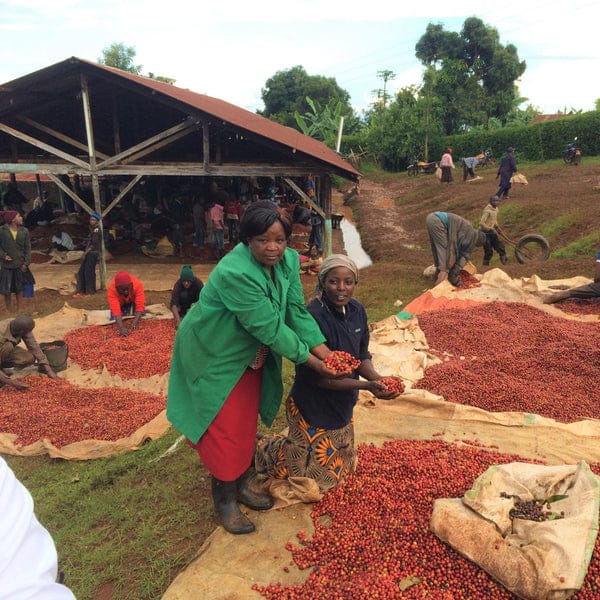BY FRED MAKANA
The golden years for coffee farmers in Mt Kenya are beckoning if the latest 2021/2022 record high payments for New Ngariama Farmers Cooperative Society in Kirinyaga County is anything to go by.
The New Ngariama Farmers Cooperative Society in Kirinyaga County which has been making direct sales to buyers, which enabled farmers to get a windfall thanks to the ongoing reforms in the sector initiated by Munya.
Munya who has become a darling of coffee farmers across the country has been instrumental in dismantling cartels that have been fleecing farmers for many years reducing them to paupers despite producing Kenya’s black gold.
Recently coffee farmers in Murang’a County broke down in tears following reports that Munya would resign to pursue politics forcing the CS to assure them he would not abandon them at such a critical time in the reforms a decision that was immediately endorsed by the Head of State President Uhuru Kenyatta.
Munya has attributed the turnaround of the fortunes of coffee farmers to various interventions that he has implemented in the short period he has been at the helm at Kilimo House.
The payment to farmers has now broken the Sh100 per kilo of cherry psychological barrier with many factories paying between Sh 100 and Sh 120 per kilo.
Most farmers who spoke to News Today expressed their excitement attributing their success to the coffee sector reforms initiated by CS Munya.
The highest paid farmers in Kirinyaga’s Kainamui factory will be paid Sh120 per kilo, followed by those from Kamwangi factory in Kirinyaga that paid Sh115 per kilo of coffee while those of Kiamugi factory will also pocket Sh 120 per kilo.
While announcing asking farmers to go for their pay, New Ngariama society manager Francis Njagi praised Munya for being bold and fighting cartels who have misused and deprived coffee farmers of their hard-earned money.
“CS Munya has our blessings. These reforms he initiated have given hope to many farmers who had given up on the cash crop and were in the process of uprooting the crop,” Njagi said.
Jackson Ngari who was beaming with excitement. He was optimistic that his factory would surpass a hundred shillings per kilogram pay.
“We were determined to improve our coffee berries through applying proper farming skills. Every farmer played his or her part to improve on the yields through the use of proper sprays, manure and fertilizer application. We also worked closely with the factory leadership to make sure all goes well,” he said.
He is now urging the government to continue supporting farmers through equipping them with necessary farm inputs as well as knowledge on how to continue improving and increasing their yields.
Ngari has also appealed to the agriculture ministry to aggressively conduct a civic education to coffee farmers on the proposed reforms, as many are still ignorant about them.
“All we know is that the Munya led reforms made of officials wake up, otherwise where do you think this money has come from as compared to the other years where a kilo of coffee would fetch between 10 and 20 shillings,” Ngari said
Daniel Nderitu, another farmer from Kiamugi, is equally excited and content with his society’s pay of Sh 120 shillings per kilo.
He said the factory is gradually regaining its lost glory after close to five years of mismanagement by the previous leadership.
Nderitu expressed optimism that with the new leadership in place, the next crop would earn them over 120 shilling per kilo.
“Whatever we got this season can be attributed to the board that was disbanded earlier in the year due to bad management and hefty loans that had choked the progress of our entity,” he said.
He attributed the rise in payment to the government involvement in the management of coffee societies and the dwindling production of Brazil’s coffee, which over the years has contributed immensely to the high production of the world’s coffee.
President Uhuru Kenyatta appointed a task force in March 2016 to review the entire coffee chain and identify areas that require interventions such as production, processing and marketing.
As a result, in January last year CS Munya announced a new pricing formula that would see the determination of the price of coffee at the Nairobi Coffee Exchange (NCE) by the value of direct sales.
The new pricing formula aims to stabilize coffee prices and minimize price-fixing by middlemen who rip-off coffee farmers in the industry. Munya empowered farmers to choose factories that will process their produce from a pool of three interested millers.
The farmers now have a representative at each coffee milling and buyer sourcing stage to ensure accountability in the whole coffee value chain.

